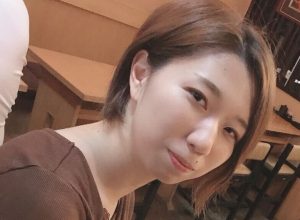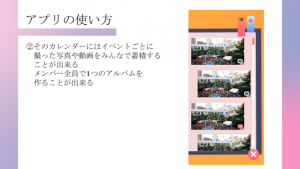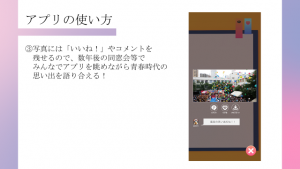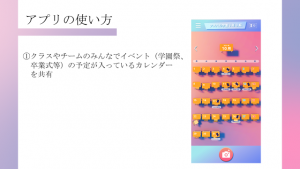Creators in Bandai Namco Studios (BNS) work passionately to create games that everyone can enjoy. But what exactly is the source of their passion?
This series of articles will talk about how the creators at BNS apply things and experiences they like to game development.
In this episode, we talk with Minori Ogawa, a game designer. She shares with us her ambition to make players all over the world experience how much fun games can be. She says it’s thanks to this ambition that she proactively takes on things even if she doesn’t like them.

Ogawa Minori, Game Designer
―――Could you briefly tell us about your department and what you do for work?
I work as a game designer in Studio 1, Production 13. I’m currently thinking up the design documents for the in-game* part of a new game we’re set to develop.
*In-game: The game’s core. In a fighting game, “in-game” refers to the actual fight, whereas auxiliary elements like menus are often categorized as “out-of game.” The scope of the term “in-game” may differ depending on the project.
I joined as a new graduate in 2019 and am now on year three. I started out working with the team that makes the “Tales of” series. I then joined the development team I’m on now. The team was fairly small at first, so I got to experience a wide variety of a game designer’s tasks like writing design documents for action gameplay or designing UIs.
―――Do you have any anecdotes about experiences that left an impression on you, like things you struggled with or worked hard on?
Sure. There was a time I spent roughly two months brooding over a certain game design element that I just couldn’t get approved, hah.
I started out by proposing a set of ideas, but the proposal led to multiple discussions where people voiced what sort of things they want to avoid or told me what they want me to do. Once the requests started coming, they didn’t stop… These requests became constraints, but I was simultaneously under pressure to make something fun to play. Coming up with ideas became agonizing, but the things I did come up were rejected one after another. It turned into a negative spiral. But by continuously proposing new ideas and refusing to get discouraged, my ideas finally got approved and I was able to make it out of a hard period in one piece. Having to design a game while meeting restrictive requirements is common, so in that sense development is a constant struggle, hah.
Game development is usually undertaken with multiple other companies, not ours alone. There are times when we have to communicate something to another company and aren’t able to proceed with development until we receive their approval. It’s times like these that we run into differences in opinions; where what I think would be fun and what someone else thinks don’t match up. The frequency that we talk with external partners is limited compared to with internal staff, and as a result I find it difficult to facilitate communication with them.
―――Expressing your ideas is never easy.
It isn’t. I often feel like the most important of my job is conveying ideas. When most people think of game designers, they imagine someone who makes a game by writing design documents for other team members to implement. But doing this job every day, I feel that the most important skill for a game designer is the ability to properly convey what is fun about your ideas and why those things are necessary.
I wasn’t great at expressing myself to begin with. I received a degree in the arts, so I was confident in my ability to plan or create renditions, but I was aware that I lacked the ability to explain things logically to others. Because I wasn’t a great communicator I struggled immediately after joining the company with getting others to understand my ideas or things I wanted to do.
I tried to convey my ideas logically by consciously adjusting my explanations during presentations. For example, it’s boring to listen to lectures that use materials with big blocks of text, so I tried replacing diagrams with hand-drawn images. I’m decent at drawing so I tried capitalizing on my strengths by using pictures to convey the fun parts of my ideas, or to immediately explain ideas that are difficult to convey with words. This proved effective, my communication skills improved, and my stage fright was cured. I began to enjoy presenting.
Another thing I think is important related to mindsets is thinking from the player’s perspective. I always try to think about whether the player would emotionally experience gameplay in the way that we intended; whether they would think that the game is easy to play. That’s why I also scrutinize the minor elements in addition to core gameplay. (Things like whether a small icon would be easier to recognize if it glowed.) It’s important to think about whether we’re taking the player’s perspective into account as opposed to the situation we’re in as creators.
I originally joined this industry because I like games, but there are more than a few people who end up falling out of love with games after working on them as a job. I wouldn’t call myself a workaholic, but after starting to work at a game company I found myself analyzing the games I play in my free time, which you could call a blessing and a curse.
That being said, I believe that everyone in this industry has a passion for games, and don’t want myself or my team members to forget the feeling of being entranced by a game they love. I want my design documents to scream that the game we’re working on is amazing, and to make other members want to convey that amazingness to players around the world.

―――Do you have any personal rules that you stand by when working?
I wouldn’t call it a rule, but my goal for every design document I write is to create something that will remain with the player. I try to orchestrate moments in-game that exceed being just fun and remain with the player as memories, whether it be a good event, a memorable line from a character, or a good fight with an enemy.
To go even further, I would say one of my personal rules is to make games that players can enjoy not just while in-game, but after they finish playing as well. My hope is for them to feel like talking with their friends about the games they play, or to go to bed after playing and start planning out what they’ll do in tomorrow’s session, hah. I would love to make them look forward to tomorrow just a little bit more.
―――If you had to name a single thing you’re confident in, what would it be?
That’s a hard question… If I had to name one thing, I think it’s the ideas I come up with. I bring a lot of ideas that other people wouldn’t come up with. You could also describe my ideas as eccentric, so it’s a weakness as well. There are times people say my ideas are interesting and times when I’m told they’re unrealistic or hard to grasp, so it’s a double-edged sword. That’s why I try to come up with as many ideas as possible. I come up with a slew of run-of-the-mill ideas and intersperse them with outlandish ideas, like I’m hiding traps. The times when more outlandish ideas get approved than I would have imagined are never disappointing.
―――Ideas are a great thing to be confident about!
I’m not actually that confident, hah. My lack of confidence is why I’m glad that I can come up with a lot of ideas and have other people pick from them. Conversely, I would be stumped if I was told to present one single good idea. When I create design documents, I start with the mainstream approach that most games take, then move on to the exact opposite, then something that exists in its own universe. I make sure I get at least one hit by going wide.
That means that my strength is my ability to come up with a lot of ideas… maybe? (Laughs)
―――How did you learn to come up with ideas?
I actually had never made a game before I joined the company, and experienced development for the first time during new graduate training. However, many other participants had graduated from vocational schools for games or developed games while in university, and I couldn’t even begin to compare with them. This led to an important event where I reflected on what I’m capable of doing and concluded that I should learn to come up with ideas that other people wouldn’t think of.
At first, I felt that I was inferior when compared to my team members. I started with no experience making games and didn’t even know what design documents were, so I learned from the people around me while looking for ways I could help.
―――Do you have any aspirations, or things you want to try in the future?
I want to make all sorts of games! I want to work on RPGs, action games, fighting games, and simulation games; I want to try my hand at different games without limiting myself to a single genre. I want to continue to receive exposure to new games, and to study widely and bring a multitude of perspectives to the games I make.
I’d also like to work on games that don’t use controllers, like arcade or VR games. I would love to get a chance to create new experiences that are only possible on a specific console. In any case, I want to make all sorts of games!
Ultimately I’d like to supervise work on scenarios. After polishing my skills by developing all sorts of games, I want to create one with a scenario and worldbuilding that inspires the player.
―――To wrap up, could you tell us one of your guiding principles?
One of my guiding principles… I’m not sure if this fits the bill, but I make a point of trying out everything and anything. I make sure to first volunteer for any chance I get, even if it’s something I’m not interested in or that I’m not confident I can accomplish.
Before SPAJAM* someone told me about the event and asked me if I wanted to join, and my immediate response was that it sounds demanding. Even then I volunteered, saying I wanted to participate, hah.
*SPAJAM…… A hackathon for smartphone apps. BNS became a platinum sponsor from 2020 and normally participates in the hackathon with a team of young employees. Ms. Ogawa joined the hackathon in 2021 as a team leader.
The hackathon was tough, but it was a fun experiencing looking back, so I’m glad I volunteered to participate!
I want to try all sorts of things as long as at least part of the memory was fun in retrospect, even if the experience itself was hard or didn’t go as planned.
―――Thank you!







